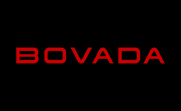


Players accepted from


 Live Casino Games From Colombian Studios
Live Casino Games From Colombian Studios Here are a few popular live dealer games that are known to be filmed in Colombian studios. Note that not every table is always streamed exclusively from the country. Most of the time, only Spanish-speaking tables are actually located in Colombia.
Currently, we can only confirm that Ezugi boasts studios located in Colombia. However, it’s worth noting that Ezugi is fully owned by Evolution, which is arguably the biggest company in the live casino industry. Evolution is also licensed to offer their games in the country, which might mean that some of their Spanish-speaking tables are also located here.
 Colombia
Colombia
 World
+
-
World
+
-
Ezugi were founded in 2012. Unlike many newbies, they didn’t want to focus on a particular niche. Ho Gaming, for example, immediately realized that the Asian market is their main target. Ezugi, on the other hand, wanted to cut straight to the chase and establish a global presence.
So, it’s no wonder that they have offices in Latvia, Israel, Colombia, Spain, and the UK. They also boast some of the most impressive studios, but more on that in a bit. Diversity and the input of various cultures are precisely what turned Ezugi into a force to be reckoned with.
As per Ezugi’s information, live dealer Colombia operations are mostly focused on native-speaking tables. In other words, if you’re enjoying an Ezugi game in Spanish, you’re likely watching a stream from Colombia.
Few non-English languages get the chance to have live casino studios completely dedicated to them. This just highlights the growing importance of Spanish on the global gambling scale. Currently, it’s the most widely represented language after English, with most casino operators offering native-speaking live casino games in Spanish.
Beyond that, Colombia is located in close proximity to both South and Central American countries. Although online gambling can be enjoyed from anywhere in the world, physical proximity translates to lower latency and more stable connections.
Moreover, the US online casino market is finally getting some much-needed legal reform. Colombian live casino studios may soon become the prime destination for operators targeting American players.
We’ve already covered some of the reasons casino operators find this South American county so enticing. However, let’s consider a few points from the perspective of players.
As we mentioned above, Ezugi is currently the only supplier with a confirmed presence in Colombia. This is their newest studio which only opened its doors in 2021 after a lengthy auditing process by Colombia’s gambling regulator, Coljuegos.
The state-of-the-art studio is already running full steam with seven gaming tables with native-speaking Spanish dealers. According to Ezugi, games such as live blackjack, unlimited blackjack, roulette, and baccarat are all present in the newly opened studio.
That said, it’s important to understand the studio was primarily opened for live casinos in Columbia. The country is its primary target audience, which is reflected in both the language and other aspects. For starters, betting limits are adjusted to fit Colombian players’ needs. Moreover, the selection of games was made based on market research on the preferences of Colombian players.
Additionally, Ezugi has expressed intentions to expand Colombian live casino operations further. This will include more games, more tables, and even dedicated tables for specific live casinos in Colombia.
The history of gambling in Colombia is both rich and vibrant, with its roots extending far back before the formal legalization in 1943. This activity was a prevalent pastime, deeply woven into the social and cultural fabric of Colombian society, often organized within local communities and serving as a sort of social event.
The formal legalisation process began in 1943 with an act designed to regulate gambling. The goals of these regulations were clearly designed to move gambling away from the shadows and into a regulated, structured market of the growing Colombian nation. The country made a significant shift from an unregulated environment to one where operators were obligated to pay taxes and fees. This foundational bit of lawmaking set the stage for future regulatory advancements.
In 1993, the Colombian government established the Empresa Territorial para la Salud (ETESA) to impose order and oversight on the previously informal gambling sector. However, due to rampant corruption and inefficiency, ETESA was ultimately dissolved, leading to the formation of Coljuegos. Operating under the Ministry of the Interior, the Coljuegos remains the main regulatory body to this day, issuing licenses and overseeing gambling activity.
Another important event took place in 2016 with the introduction of the eGaming Act, which created a legal framework for sports betting and online casino games. This made Colombia the first country in Latin America to comprehensively regulate online gambling. This legislation paved the way for a structured and legal online gambling industry, attracting both domestic and international operators.
The first online gambling license was later issued in 2017. In the following years, stringent Know Your Customer (KYC) and Anti-Money Laundering (AML) regulations were enacted, accompanied by the establishment of technical standards and responsible gambling initiatives in the 2020s, collectively ensuring that operators maintained high standards of financial and operational transparency.
Currently, Colombia boasts one of the most advanced and well-structured online gambling environments in South America. The regulations are characterised by robust regulatory standards that are in line with global practices and allowances for foreign companies to operate in the country as long as they adhere to its laws. This stands in stark contrast to, for example, Mexican casino sites, which operate with virtually no oversight.
Online gambling is fully legal and regulated for Colombians under the eGaming Act of 2016, which requires all operators to secure a license from Coljuegos, the national regulatory authority. The license is focused on promoting fair play and safeguarding consumer interests.
For international operators, this opens the door to the Colombian market, provided they adhere to local regulations. For example, offshore casinos have to secure and register a local company and have to be managed through Colombian banks. However, the outcome is that Colombian players have access to a huge range of top casinos and games, which can rival almost any other country on earth. Compared to Argentinian casinos and other countries, it’s a very efficient system that benefits players in many ways.
Once licensed, these operators can offer a diverse array of gambling options, including sports betting, casino games, poker, and bingo, all while maintaining compliance with rigorous standards of fairness, security, and responsible gambling. The overall framework is on par with international standards, making Colombia an attractive location in the region for gambling companies of all sorts.
The key components of Colombia’s regulations are designed to promote fairness, protect customers, and only allow reputable operations to run in the country. Online gambling companies, including both casino operators and software providers, have to meet several compliance requirements before acquiring a Coljuegos license. The most important requirements include:


